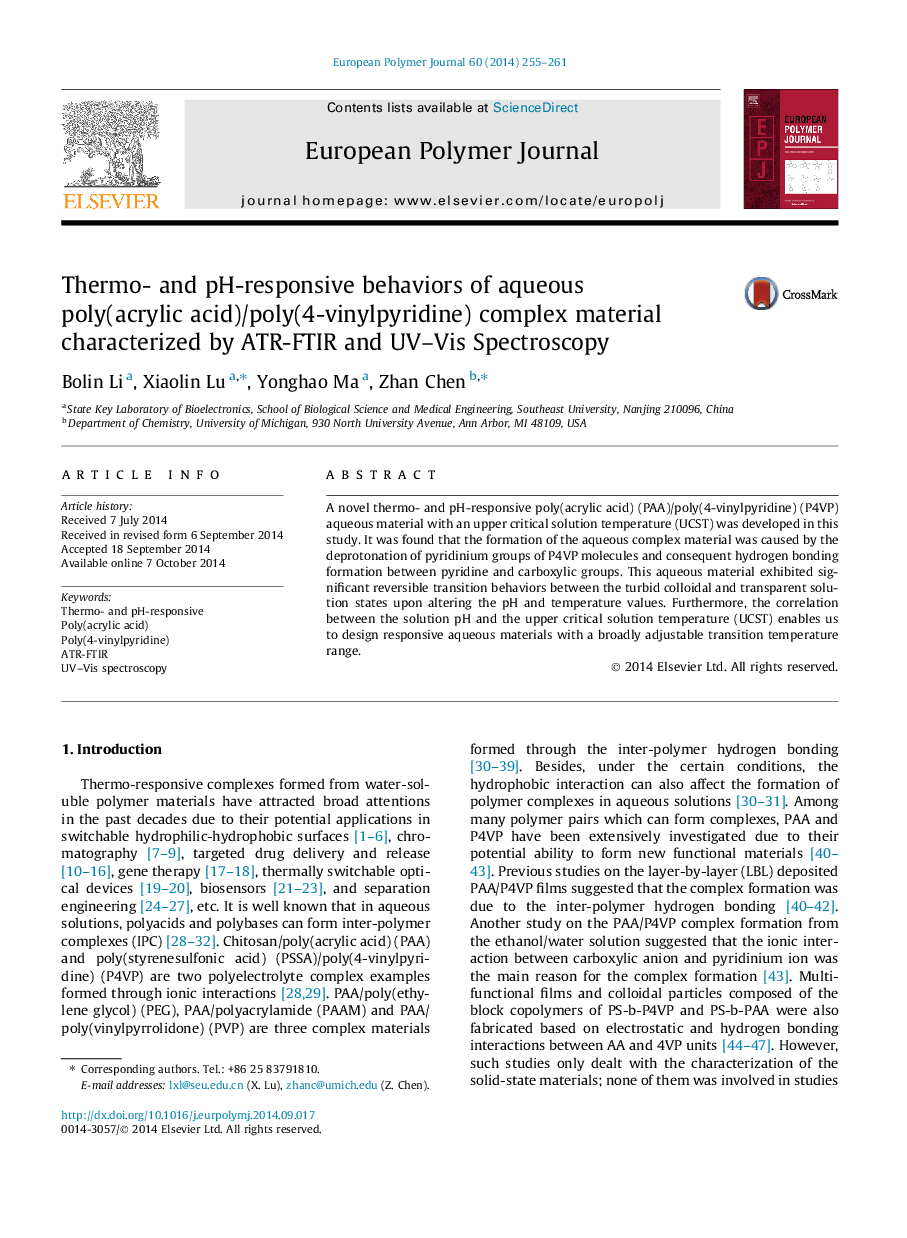| کد مقاله | کد نشریه | سال انتشار | مقاله انگلیسی | نسخه تمام متن |
|---|---|---|---|---|
| 1398098 | 1501375 | 2014 | 7 صفحه PDF | دانلود رایگان |

• A novel thermo- and pH-responsive complex aqueous material was developed.
• Deprotonation of pyridinium groups leads to complex formation.
• Thermo-responsiveness can be regulated through pH, unit ratio, and Mw.
A novel thermo- and pH-responsive poly(acrylic acid) (PAA)/poly(4-vinylpyridine) (P4VP) aqueous material with an upper critical solution temperature (UCST) was developed in this study. It was found that the formation of the aqueous complex material was caused by the deprotonation of pyridinium groups of P4VP molecules and consequent hydrogen bonding formation between pyridine and carboxylic groups. This aqueous material exhibited significant reversible transition behaviors between the turbid colloidal and transparent solution states upon altering the pH and temperature values. Furthermore, the correlation between the solution pH and the upper critical solution temperature (UCST) enables us to design responsive aqueous materials with a broadly adjustable transition temperature range.
Figure optionsDownload as PowerPoint slide
Journal: European Polymer Journal - Volume 60, November 2014, Pages 255–261